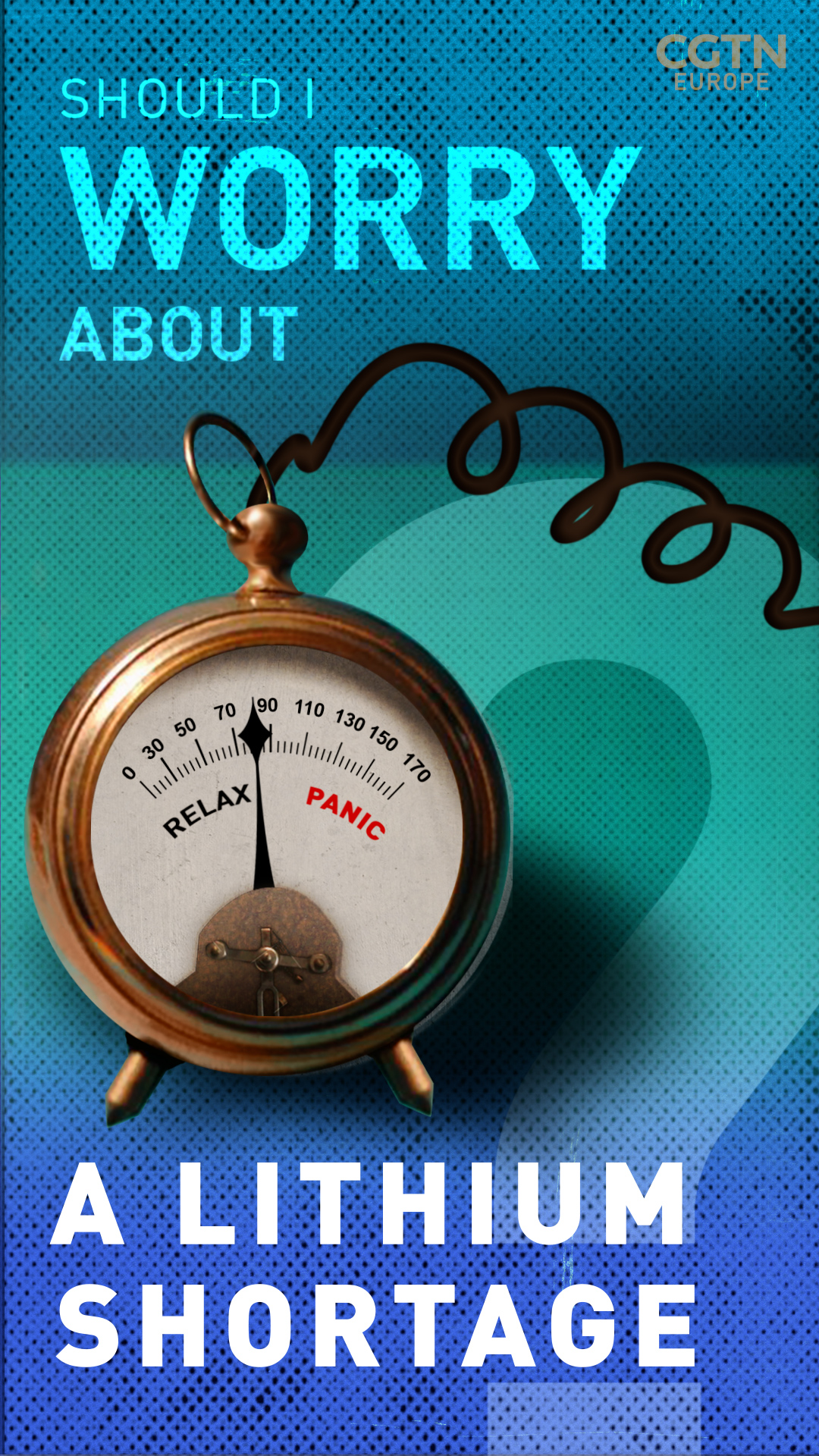02:43

What's the problem?
Electric vehicles are envisaged as the future for transport as the world moves towards green energy but there is a lack of available lithium which is a key component for batteries.
Many European countries have set strict targets for eliminating vehicles with combustion engines during this century – but will a lack of lithium make this a problem?
READ MORE
What is going on between Czechia and Russia?
Earth Day revised: A year of firsts
Who is Germany's potential Green chancellor?
Why is lithium so important?
Lithium is an integral component for electric batteries, which have been designed for more environmentally-friendly vehicles. Combustion engines are being quickly phased out for a greener future and this abrupt change has led to a shortage in lithium.
There is a fear that a lack of lithium could slow down the distribution of electric cars and hinder the process to switch over from petrol-fueled cars. Also, lithium, cobalt, copper and nickel could undergo a price hike that would make the new cars more expensive.
Is there a shortage?
For the EU to meet its 2030 target it will need 18 times more lithium – and to meet the 2050 objective it will require 60 times more. As things stand there is a lack of lithium and the solution is for the market to become more profitable for the mining companies.
There is no shortage of lithium in the world, but currently not enough is being mined because it is a time-consuming process and current prices are low.

Lithium is crucial component in electric car batteries. /Matthias Rietschel/Reuters
Lithium is crucial component in electric car batteries. /Matthias Rietschel/Reuters
Why is there a lack of lithium?
The price of lithium underwent a massive three-year surge up to 2018, when it reached $17,000 per tonne, but the market calmed down and it has now more than halved to around $8,200 per tonne.
It means that some mines have nearly reached their break-even point and there is little incentive for companies to invest in infrastructure for higher production.
"I think the problem has been for the lithium industry is that the last two years have been kind of ropy, the lithium prices have been very low," said James Ley, energy metals senior vice president at Rystad Energy.
"There was a lot of supply of lithium that entered the market from Australia to respond to a Chinese boom in 2016-17. It kind of overshot, really. And then we had a lot of mines going into care and maintenance being put on hold.
"So I think there's a lot of caution from some parts of the world to bring in new investment on stream to meet its future demand. And that's obviously leading up to the problems that we anticipate could come through later in this decade."
Is there an environmental cost to mining lithium?
Mining can lead to deforestation, air pollution, water contamination and noise. An example is Covas de Barroso in Portugal where the surrounding mountains have some of the biggest deposits of lithium in Western Europe.
Some local people are against more mining as they fear it will lead to pollution and an end to their way of life. Lithium mining is, though, backed by the EU as a way of moving to a greener form of energy.
Should we be looking for an alternatives to lithium batteries?
Lithium is crucial for electric batteries at the moment and Ley says that raw minerals like it are going to be necessary for the foreseeable future.
On looking at new designs, Ley said: "I think it's too early, based on its properties. It's essential in all of the batteries, it's super-light and [with] its energy properties, I think any of the designs that come through are likely to have a lithium component in them."
Modifications can be made but the basic ingredient, whether it is lithium or cobalt, remains vital.
"Same thing [...] with cobalt for its fire resistance that it's needed with the batteries," said Ley.
"So it does become difficult, but obviously designs have evolved recently. We've seen the nickel batteries take hold, particularly for the likes of Tesla, which do drastically lower that cobalt content because there was a huge surge in the pricing then.
"So I think there are some elements and there is some ability to redesign. But I think a lot of these key battery raw material minerals, you are going to need them in most of the designs coming forward in the future."
READ MORE: Should I Worry About... Gender-biased AI • Negative interest rates • Atmospheric ammonia • AI deepfakes • EU border policy • Children gaming • Knife crime • Trust in politics • Gang databases • Fast fashion • Flying during COVID-19 • Food shortages • RSI from working at home • Children and coronavirus • COVID-19 conspiracy theories • Catching COVID-19 twice • My dog during the pandemic • My name • My brain in lockdown • Asymptomatic COVID-19 • Gendering toys • Falling fertility rates • Psychic numbing • Long COVID-19 in the young • Young people's mental health

